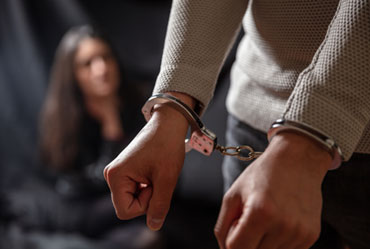Search

The legal system consists of two separate domains which have different rules and consequences for each of their functions. Common civil matters occur when people dispute with each other but criminal cases exclusively involve government prosecution of state lawbreakers. Certain specific situations enable civil cases to develop into criminal charges. The following article analyzes civil lawsuit transitions into criminal investigations along with their consequences during the process.
A complete understanding of distinct legal aspects is vital before welcoming ourselves into the crossover analysis. Private disputes between parties cause civil cases to end in financial damages or court directives including injunctions. The state or society prosecutes criminals based on their crimes which can lead to terms like imprisonment and supervision but often leads to financial penalties. Common examples: A business who files suit against a supplier for breach of contract typically brings such a civil action. A criminal charge occurs when law enforcement officials file theft and assault accusations against a person.
A civil lawsuit may identify unlawful conduct which might also qualify as a criminal offense. A civil case could potentially evolve into criminal charges when all these situations happen:
Law enforcement will take over cases filed as civil lawsuits when strong evidence confirms intentional deception in fraud claims such as insurance or real estate fraud. Fraud is a criminal offense so civil claims for damages can turn into criminal investigations. Financial advisor mismanagement of money prompts a lawsuit filed against them by their client. The court proceedings led to discovery of the advisor operating a Ponzi scheme. The potential existence of criminal fraud would result in charges against the offender.
Evidence It qualifies as a criminal offense to lie under oath during any civil trial. The act of perjury combined with evidence tampering creates sufficient grounds for criminal legal action even though a dispute started as a civil matter.
Someone who experienced sexual harassment or assault must start with a civil lawsuit in order to pursue compensation. The discovery of non-consensual contact through evidence in a civil case will trigger possible criminal investigation procedures.
The violation of any civil court order results in contempt of court proceedings which might lead to criminal prosecution for the offender.
Criminal acts get revealed through the civil case procedure when attorneys conduct system discovery or activate subpoenas or perform depositions. During suspicion of criminal activity attorneys together with the judge will notify relevant authorities about it.
Proponents of criminal cases need to be district attorneys or public prosecutors to file charges. Judges taking part in civil cases lack the authority to make criminal charges themselves yet they do possess the power to submit criminal matters to police and law enforcement agencies for additional action.
The O.J. Simpson Case O.J. Simpson managed to receive an acquittal in his criminal murder trial but became responsible through civil court rulings in a wrongful death settlement. The situation shows how these two systems operate although this case started with criminal proceedings before civil proceedings. Civil proceedings generate evidence of criminal activities which prosecutors eventually decide to prosecute.
A civil court action will not trigger criminal prosecution by itself yet it does provide an entry point for exposure of unlawful conduct. Lawful civil litigation needs transparent management because it demands full openness and expert legal expertise.
Q: Does a civil case automatically lead to imprisonment even though it may reveal jail-worthy offenses.
A: Not directly. The available evidence from this civil case could lead to prosecution for criminal charges which could result in imprisonment.
Q: The authority to choose between criminal charges comes from which individuals?
A: A district attorney holds the power to file criminal charges instead of the civil plaintiff and neither the plaintiff nor the judicial officer has this authority.
Q: Is evidence from a civil case usable in criminal court?
A: Yes, in many cases. Evidence discovered during civil proceedings has the potential to become court-acceptable evidence in a criminal trial when derived from proper legal sources.